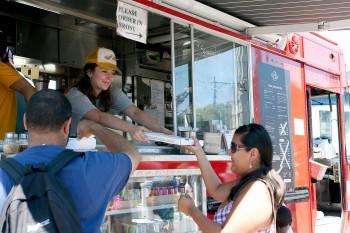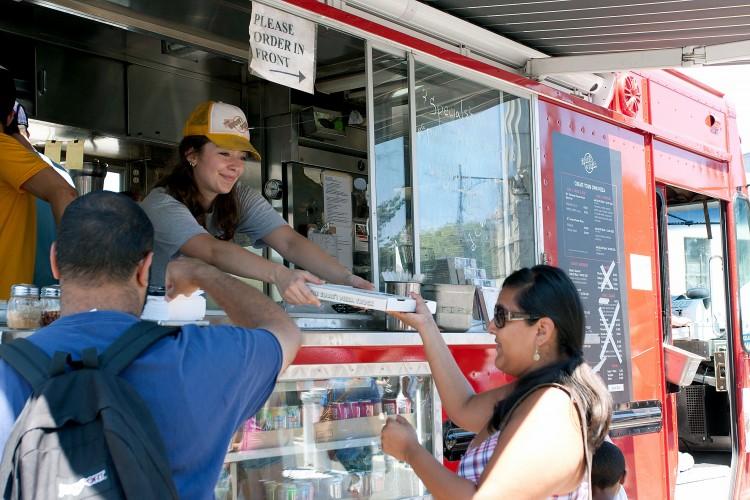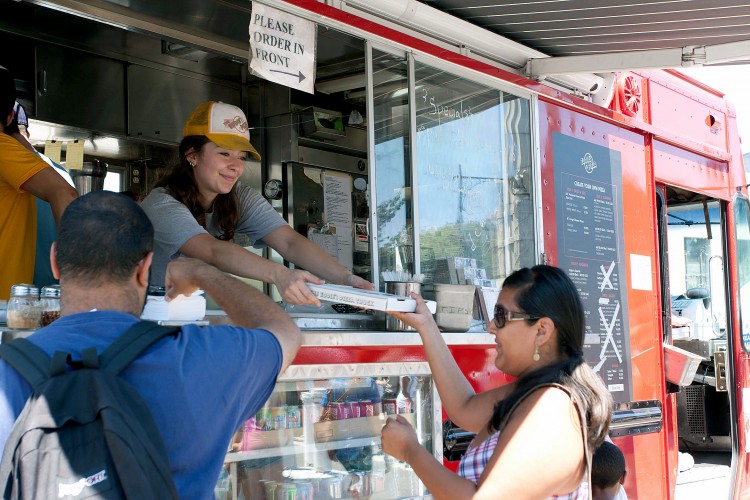Food Trucks Struggle to Find a Home in New York
Food trucks set up shop near Grand Army Plaza in Brooklyn at a monthly event hosted by the Prospect Park Alliance, which aims to bring good food to park-goers while giving trucks a hassle-free space to sell their dishes.

PIZZA AT THE PARK: Susana Medeiros serves pizza from Eddie's Pizza truck with a smile at Prospect Park Food Truck Rally on Sunday. Tara MacIsaac/The Epoch Times
|Updated:






